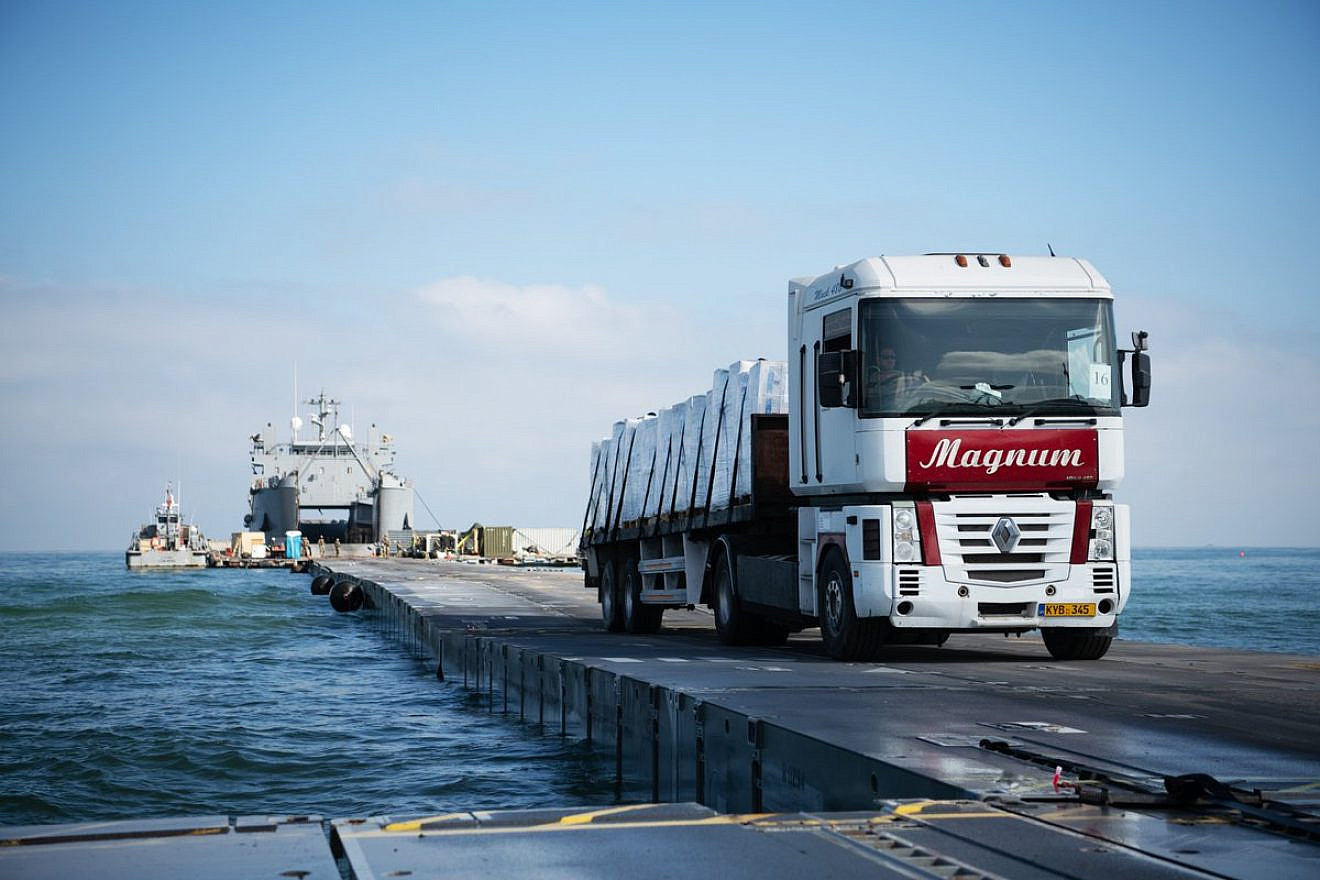After demanding for months that Jerusalem let more supplies enter the Gaza Strip, with Israel insisting that the bottlenecks are on the Gaza side, the U.S. appeared to come around to Israel’s position on Wednesday.
“Though Kerem Shalom is open and trucks are queued up outside, not a lot of them are getting in, and it’s not because of the Israelis,” White House National Security Communications Advisor John Kirby said at a press briefing.
Kirby blamed the problem on looting by Gazan “criminal gangs and thugs.” He insisted the criminals were not connected to Hamas, although the U.S. has blamed Hamas in the past for stealing supplies, with the administration notably condemning the terrorist group for hijacking a large aid convoy from Jordan in May.
In pointing to gangs as the culprits, the White House also ignored Israeli reports of widespread theft by Hamas, which it says has been stealing up to 60% of the aid entering the Gaza Strip.
A Channel 12 report in May revealed that Hamas had made at least $500 million in profit off such aid since the start of the war, turning around and selling it to the civilian population.
Admitted Kirby, “I’m not trying to pull—take Hamas off the hook here, because Hamas has, in fact, allowed some of this activity to go on and don’t have the best interests of the people of Gaza forefront in their minds.”
If the administration is no longer holding Israel responsible for the aid jam up, it would represent a shift in thinking. Less than two weeks ago, the State Department sanctioned an Israeli protest group for “harassing and damaging convoys” (something the group denies).
Israel has largely blamed the aid failure on the United Nations. On Wednesday, COGAT, the Israeli body responsible for coordinating aid into Gaza, tweeted a picture of tons of aid waiting for pickup at the U.S.-built JLOTS (Joint Logistics Over-the-Shore) pier.
It noted that looting wasn’t the issue.
Appending the image to a U.N. World Food Program (WFP) report that 96% of Gaza “face[s] extreme levels of hunger,” COGAT asked: “what’s your excuse here, @wfp?”
“All this food (and more) is waiting at the offloading area of the JLOTS. There are no looting or security concerns, only a lack of motivation. To truly turn the corner, stop making excuses and start playing your role as a humanitarian food organization and the head of the logistic cluster. Lots needs to be done.”
UM… what's your excuse here, @wfp?
All this food (and more) is waiting at the offloading area of the JLOTS. There are no looting or security concerns, only a lack of motivation.
To truly turn the corner, stop making excuses and start playing your role as a humanitarian food… https://t.co/Nzx3XYa6Eu pic.twitter.com/ftkYUhusVf
— COGAT (@cogatonline) June 25, 2024
Israeli Prime Minister’s Office spokesman David Mencer said at a press briefing on Tuesday that “non-U.N. actors are able to collect the aid, but the U.N. is incapable.
“So together with 6,500 pallets of aid from the JLOTS offloading area, a total of 1,500 truckloads of aid just languish in the sun,” he said, referring to aid sitting at the Kerem Shalom and Erez border crossings.
Despite Israel’s allegations of U.N. incompetence and the well-documented institutional rot at another U.N. agency, UNRWA, now being sued in U.S. federal court by Oct. 7 victims for diverting more than $1 billion to Hamas, the White House said it would nevertheless continue working with the U.N.
“We’ve been talking to the U.N. about seeing if we can’t help get them personal protective gear and equipment, communications, radio communication, so that their truck drivers can feel a little bit more safe,” Kirby said.
He reiterated the White House’s call for a ceasefire. “The real answer to this is to get to phase one of this ceasefire deal,” Kirby said. “If you have a six-week ceasefire in place, then nobody is shooting at anybody, and it should be a lot easier to move humanitarian assistance.”


























